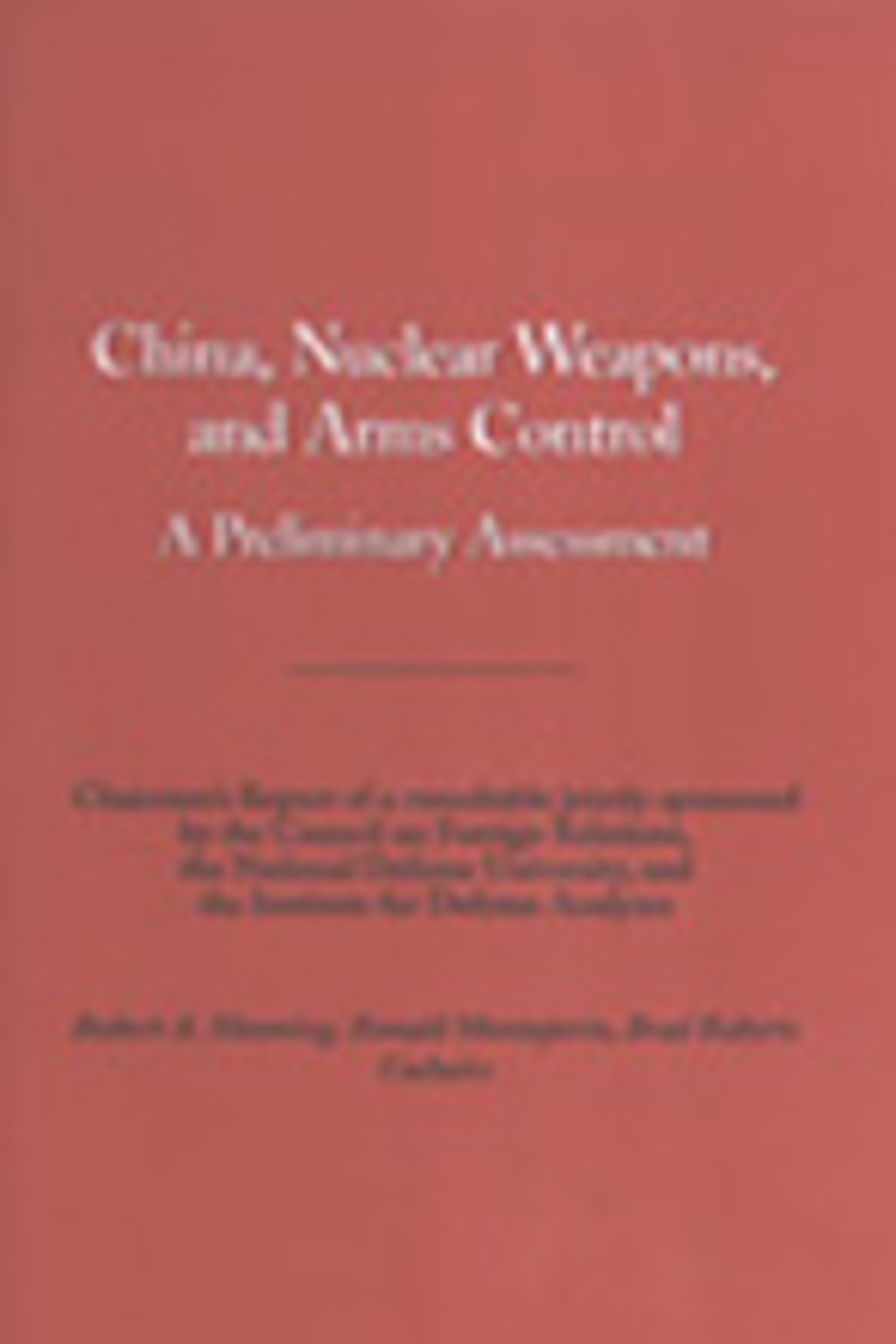China, Nuclear Weapons, and Arms Control

BY
- Robert A. ManningSenior Adviser, Atlantic Council
- Ronald Montaperto
- Brad Roberts
Few challenges loom as large on the U.S. foreign policy agenda as the effective management of relations with the People’s Republic of China (PRC). This is a perennial challenge, given China’s central role in Asia and the many issues on the bilateral agenda that feature prominently in U.S. domestic politics. But U.S.-PRC relations take on added significance with China’s emergence after decades of isolation and its growing weight in the global economy. Cooperation between China and the United States could pay large dividends for the international system more generally -- just as confrontation between them would have far-reaching implications. The U.S.-PRC bilateral agenda is loaded with many contentious issues, including trade relations, human rights, regional security, and nonproliferation. During the last year or two, another issue has emerged: the strategic military dimension of the relationship, particularly the nuclear component.
The Cox Committee report of spring 1999 was a dramatic wake-up call for many, sounding an alarm about China’s emergence as a nuclear competitor of the United States and Beijing’s apparent willingness to use all means to gain advantages. Beijing has sounded its own alarm -- over the prospective U.S. deployment of both theater and national missile defenses. A new set of political-military issues is thus joining the traditional and already overloaded bilateral agenda. The coming national election promises to put some of these issues at center stage. The debate over national missile defense is certain to focus in part on the impact that such defenses might have on China’s strategic modernization program and the Chinese assertion that national missile defense is the impetus for that program. The next administration will have to buttress its electoral promises with a sound understanding of China, Nuclear Weapons, and Arms Control U.S. interests vis-a`-vis China’s strategic modernization program and how best to secure outcomes consistent with U.S. interests and preferences.t





